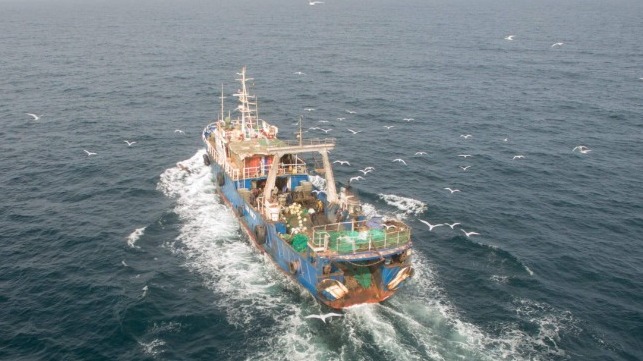Report: African Flag Registries Could Help Fight IUU Fishing

In a report released Wednesday, the maritime intelligence consultancies TM Tracking and I.R. Consilium have highlighted the ways that illegal fishing vessel operators exploit African flag registries to avoid repercussions for their activities. Under-resourced African coastal states are tempting targets for unscrupulous fishing vessel owners, and some take advantage of African flagging to facilitate the theft of African natural resources.
"The flagging of fishing vessels is a fundamental issue of sovereignty. African states should have exclusive control over the resources within their own territory, and full control over how foreign entities may use their name and reputation to interfere with the resources of other countries," said Dr. Ian Ralby, the CEO of IR Consilium and a co-author of the report.
The report looks at two "high-risk" flagging trends: first, the use of African flag registries to avoid meaningful oversight on the high seas, where only the flag state has jurisdiction; and second, the use of African open registries to "flag in" and access the waters of an African state as a "local" vessel. As an example, the report highlighted the flag of Tanzania (Zanzibar division), which has been used by foreign IUU fishing vessels like the Dong Bang 139, a notorious suspect vessel once sought by Interpol. Historical examples show that repeat-offender vessels like the Dong Bang often engage in flag-hopping between multiple African registries (and international open registries) in order to evade enforcement.
Though foreign vessel owners from a broad range of nations have been implicated in these arrangements, the "overwhelming majority" of foreign IUU fishing vessels flying an African flag come from China, according to the report. China's distant-water fishing fleet has a strong presence off Africa, and these vessels have increasingly been flagging into the registries of African coastal states. "In many countries, particularly those with significant trawler fleets, the majority (or sometimes all) of the fishing vessels are owned by Chinese companies," the authors found.

that matters most
Get the latest maritime news delivered to your inbox daily.
To address the problems of IUU fishing in African coastal waters and abroad, the authors recommended stricter oversight by flag administrations. This includes deflagging vessels linked to IUU fishing; an interagency due diligence process for new fishing vessel applications to the registry; better oversight of for-profit flag operators (for the commercially-run registries); stronger application and compliance requirements; and strengthened enforcement. If implemented, these governance improvements could have an impact: according to the UN Food and Agriculture Organization (FAO), "lack of effective flag state control has been cited as the primary cause of IUU fishing."
“Every fishing vessel needs to have a flag, and every flag state needs to effectively manage those fishing vessels. Ensuring that high-risk fishing operators and vessels cannot enter a flag registry or fishing grounds is one of the simplest and cost-effective steps that any nation can take to reduce the risk of illegal fishing, unsustainable fishing practices, and reputational damage," said co-author Duncan Copeland, the executive director of TMT.
